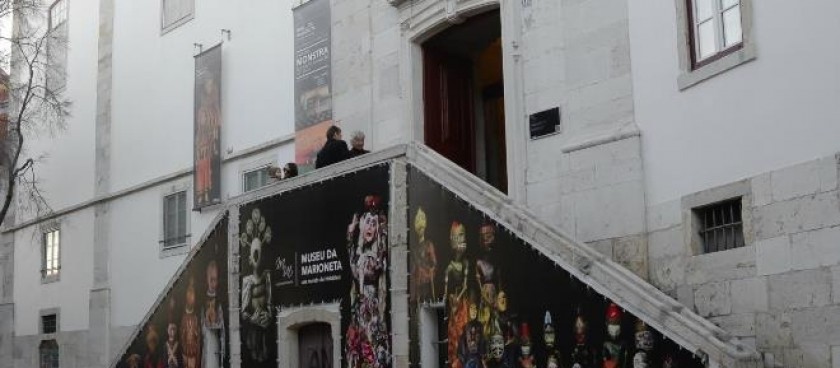- #PT22
- Rua da Esperança 146, 1200-660 Lisboa, Portugal
- +351213942810
- museu@museudamarioneta.pt
- https://www.museudamarioneta.pt/
- Working hours*:
Shop - Mon-Fri from 10:00 to 19:00; Saturday from 10:00 to 18:00
The hospital of dolls also works as a museum: from Mon. on Sat. from 10:30 to 12:30 and from 15:30 to 17:00. - Prices*:
Museum entrance: 2 € - * - opening and closing times as well as entrance prices, are subject to alterations without notice. Visitors are advised to check before visiting.
- 38.7079761, -9.1557756 Copy to clipboard Copy
-
#Museums
In 1830, in the centre of Lisbon, on the Figueira square, where the city fair located, there was a small shop where an elderly lady sold herbs. She often sat at the door of her store and made dolls from scrap materials. In those days, the fair was full of people who came here from all over the city. You could buy anything here: ducks, rabbits, chickens, pigeons, fish; all this mixed with bunches of carrots, flower bouquets, smells of herbs, spices, cabbage and the sounds of the fair.
Don Carlota (and that was the name of our herbalist) constantly surrounded by children, who could always leave at the craftswoman's shop, and, not fearing that they would get lost, go to buy a kilogram or two of potatoes or carrots.
Children loved to watch Don Carlota make dolls. They bombarded her with questions, talked about their dishes and, often, about their breakdowns. Everyone knew that Don Carlota could cure his beloved doll.
Lisbon was then tiny, and the rumour about the doll craftswoman spread throughout the city. And even after the market ceased to exist in the Figueira square, children continued to bring their sick toys to the doll doctor.
The doll hospital exists to this day. There are all kinds of dolls here - from antique to modern Barbie.
After the initial examination on the first floor, if an injured doll brought to the hospital, it is put on a stretcher and taken away to the workshop, divided into wardrooms. There is a plastic surgery department where the colour and coating of dolls restored. There is traumatology - for dolls with which they played before fractures or complete loss of limbs—the room for hand, foot, and head transplantation located next to the doll morgue. Doctors can get the vital organ for the injured doll, and there is also a puppet haven for abandoned toys.

